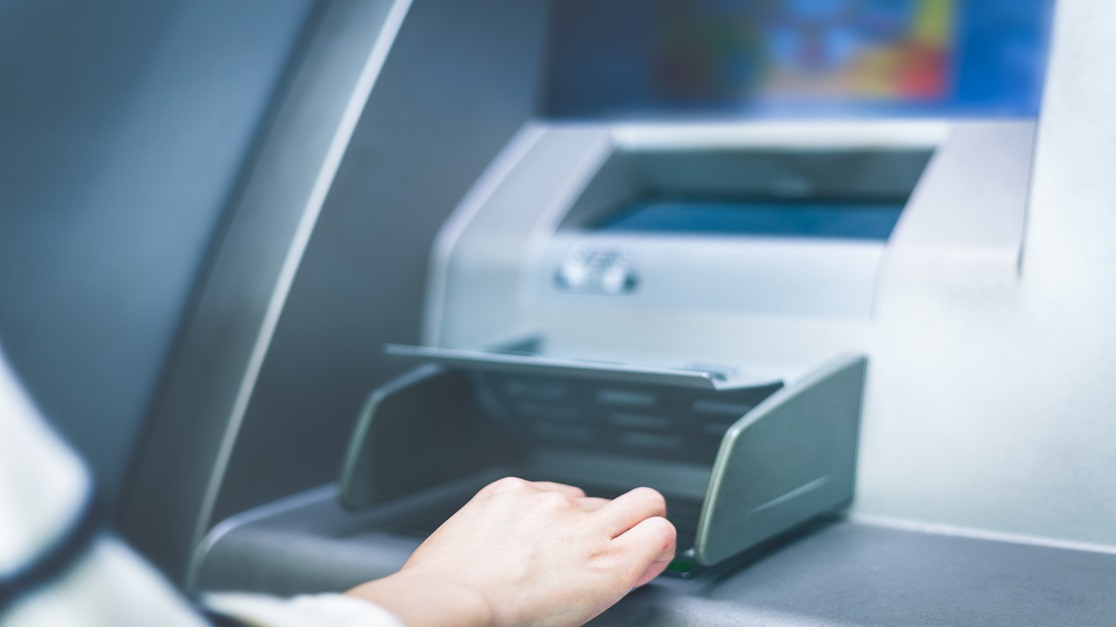Understanding How Banks Determine ATM Transaction Limits
Disclaimer: Ujjivan Small Finance Bank is not responsible for the accuracy of the information provided herein. The blog is written for generic information.
July 05, 2025

We all rely on ATMs for quick and convenient access to cash. But have you ever wondered why there are limits on the amount you can withdraw in one go? Understanding the factors that determine these limits can help you manage your finances better and make the most of your banking experience.
In this article, we will demystify ATM transaction limits, explore the withdrawal policies set by banks, and shed light on the bank rules that govern these limits.
Types of ATM Transaction Limits
When it comes to ATM transactions, banks impose different types of limits to ensure security and prevent misuse. Let's take a closer look at each type:
a. Daily Limit: This refers to the maximum limit of cash you can withdraw from an ATM in a single day. Banks typically set this limit to safeguard their customers' accounts from unauthorised access or fraudulent activities.
b. Per Transaction Limit: This limit restricts the amount you can withdraw in a single transaction at an ATM. It is usually lower than the daily limit and aims to minimise financial loss in case of theft or card skimming incidents.
c. Cash Deposit Limit: In addition to withdrawal limits, banks also impose limits on cash deposits at ATMs. This ensures that large amounts of cash are not deposited without proper scrutiny.
Factors Influencing ATM Transaction Limits
Banks consider several factors when determining ATM limits for their customers. These factors include:
a. Account Type: The type of account you hold with the bank can impact your ATM limits. Different types of accounts may have varying withdrawal limits based on factors such as your average account balance, account activity, and banking relationship.
b. Customer Profile: Banks set specific rules for transaction limits also take into account your transaction history, creditworthiness, and overall banking behaviour when setting ATM transaction limits. For example, if you have a long-standing relationship with the bank and maintain a good credit score, you may be eligible for higher withdrawal limits.
c. Security Considerations: ATM transaction limits are designed to protect customers from fraud and unauthorised access to their accounts. Banks continuously monitor security threats and adjust limits accordingly to mitigate risks.
d. Regulatory Guidelines: Bank rules must adhere to regulatory guidelines set by the Reserve Bank of India (RBI) regarding ATM limits. These guidelines ensure uniformity across banks and maintain the safety and integrity of the banking system.
Tips for Managing ATM Transaction Limits
To make the most of your ATM transactions and manage your finances effectively, consider the following tips:
a. Plan Your Cash Needs: Take stock of your daily expenses and plan your cash withdrawals accordingly. By budgeting your cash requirements for each day, you can reduce your trips to the ATM and optimise your withdrawals.
b. Utilise Online Banking: Instead of relying solely on cash withdrawals, leverage online banking services to make payments and transfer funds digitally. This can help reduce your reliance on physical cash and allow you to stay within transaction limits.
c. Opt for Higher Daily Limits: If you frequently require larger amounts of cash, consider opting for an account that offers higher daily withdrawal limits. Speak to your bank about upgrading your account or explore different account options that better suit your needs.
d. Be Mindful of Fees: Keep an eye on transaction fees associated with ATM withdrawals. Some banks may charge fees for exceeding transaction limits or using ATMs not affiliated with their network. Understanding these fees can help you minimise unnecessary charges.
Final Thoughts
Understanding how banks determine ATM transaction limit is essential for managing your finances effectively and ensuring a smooth banking experience. By considering factors such as account type, customer profile, security considerations, and regulatory guidelines, banks set limits that protect customers while providing convenient access to cash.
Enjoy easy banking with Ujjivan Small Finance Bank. Save more with our high-interest Savings Account and Deposit products. Need cash for your business or personal needs? Apply for MSME Loans or Micro Loans with us – we offer competitive rates and quick disbursal. We also offer vehicle loans and home loans tailored for your unique requirements. Experience a smooth banking journey with Ujjivan SFB!
Disclaimer:
The contents herein are only for informational purposes and generic in nature. The content does not amount to an offer, invitation or solicitation of any kind to buy or sell, and are not intended to create any legal rights or obligations. This information is subject to updation, completion, amendment and verification without notice. The contents herein are also subject to other product-specific terms and conditions, as well as any applicable third-party terms and conditions, for which Ujjivan Small Finance Bank assumes no responsibility or liability.
Nothing contained herein is intended to constitute financial, investment, legal, tax, or any other professional advice or opinion. Please obtain professional advice before making investment or any other decisions. Any investment decisions that may be made by the you shall be at your own sole discretion, independent analysis and evaluation of the risks involved. The use of any information set out in this document is entirely at the user’s own risk. Ujjivan Small Finance Bank Limited makes no representation or warranty, express or implied, as to the accuracy and completeness for any information herein. The Bank disclaims any and all liability for any loss or damage (direct, indirect, consequential, or otherwise) incurred by you due to use of or due to investment, product application decisions made by you on the basis of the contents herein. While the information is prepared in good faith from sources deemed reliable (including public sources), the Bank disclaims any liability with respect to accuracy of information or any error or omission or any loss or damage incurred by anyone in reliance on the contents herein, in any manner whatsoever.
To know more about Ujjivan Small Finance Bank Products Visit:"https://www.ujjivansfb.in"
All intellectual property rights, including copyrights, trademarks, and other proprietary rights, pertaining to the content and materials displayed herein, belong
to Ujjivan Small Finance Bank Limited or its licensors. Unauthorised use or misuse of any intellectual property, or other content displayed herein is strictly prohibited and the same is not intended for distribution to, or use by, any person in any jurisdiction where such distribution or use would (by reason of that person’s nationality, residence or otherwise) be contrary to law or registration or would subject Ujjivan Small Finance Bank Limited or its affiliates to any licensing or registration requirements.
FAQs
1. Are there different bank rules for ATM transaction for domestic and international withdrawals?
Yes, bank rules are often separate for domestic and international ATM transactions. Withdrawal limits for international transactions maybe lower due to higher associated risks.
2. What are the ATM cash withdrawal policies set by banks?
Banks set withdrawal policies to ensure the security of customer accounts and minimise financial loss in case of theft or fraud. These policies include daily limits, per transaction limits, and cash deposit limits.
3. Why do banks impose ATM transaction limits?
ATM limits are imposed to protect customers from unauthorised access to their accounts and minimise financial loss in case of theft or fraudulent activities.
4. Can I change my ATM transaction limit?
Yes, some banks allow customers to request temporary or permanent increases in their ATM transaction limits.
5. How can I check my current ATM transaction limit?
You can check your current ATM transaction limit by logging into your online banking portal or contacting your bank's customer service helpline.
6. Do different types of accounts have different ATM transaction limits?
Yes, different types of accounts may have varying ATM limits based on factors such as average account balance, banking relationship, and account activity.
7. Are ATM cash withdrawal policies uniform across the banking sector?
No, ATM cash withdrawal policies may differ from bank to bank based on type of account etc.
8. Are all ATM related bank rules set by the RBI?
Not really! Many ATM related bank rules are set by the banks themselves.
9. Can I withdraw more cash from an ATM by making multiple transactions?
Yes, you can make multiple transactions at an ATM to withdraw larger amounts of cash within the daily limit set by your bank.
10. How often do banks revise their ATM withdrawal policies?
Banks may periodically revise their withdrawal policies to align with changing customer needs and security requirements.
11. What should I do if I require more cash than my daily ATM withdrawal limit allows?
You can consider alternative options such as visiting your bank branch to request a temporary limit increase or using online banking facilities for fund transfers.
Latest Blogs

Dussehra 2025: How to Win Your Financial Battles with Smart Saving
Dussehra 2025 (also known as Vijayadashami) falls on Thursday, October 2, 2025.

eSIM Scam in India: I4C Warns Mobile Users About Rising Fraud – How to Stay Safe
The Indian Cybercrime Coordination Centre (I4C), a wing of the Ministry of Home Affairs, issued a strong warning to mobile users about the rapid increase in eSIM fraud in India.

How to Link PAN with Aadhaar: Step-by-Step Guide & Consequences of Not Linking
Linking your Permanent Account Number (PAN) with your Aadhaar is no longer just a best practice.

Annual Information Statement (AIS): A Complete Guide for Stress-Free ITR Filing
India’s tax season is in its final stretch.

ITR-1 (Sahaj) Restrictions: Income Sources Not Allowed & Filing Rules
With just a few days left before the 15 September 2025 deadline for filing Income Tax Returns (ITRs) for Assessment Year (AY) 2025-26, many taxpayers are rushing to submit their forms online.





